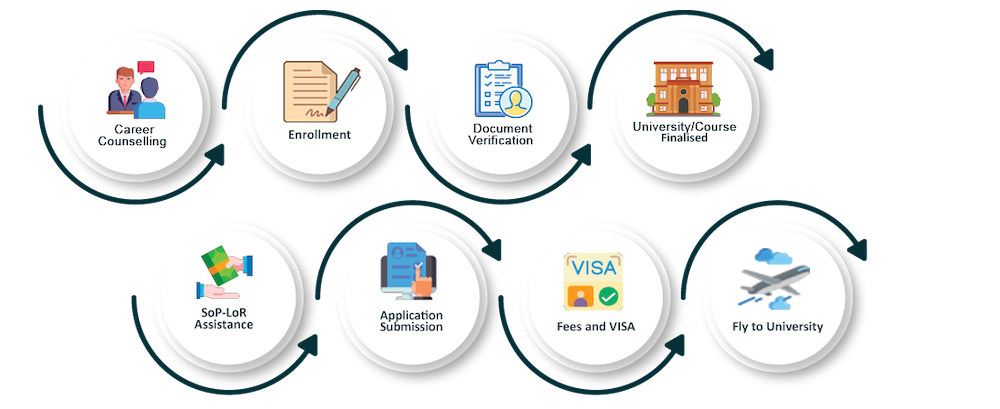Munich Business School is a private international business school located in Munich, Bavaria, Germany. The European Business International (ebsi) London, Paris, Madrid, and Milan established this organization in 1991 as the Europische Betriebswirtschafts-Akademie. The Bavarian Ministry of Education, Culture, Science, and the Arts granted the institution state recognition in 1999. This school was renamed Munich Business School in 2003. It also launched the Bachelor of International Business programmed the same year.
MBS launched its Master International Business programme in English and German/English in 2009. Munich Business School also included "International Family Firms" and "Luxury Management" to its master's programme that year. The German Council of Science and Humanities granted it unrestricted state accreditation as well as institutional accreditation in 2010. This Munich Business School’s academic offerings were expanded in 2014 with the addition of the DBA Doctor of Business Administration. The German Council of Science and Humanities reaccredited it in 2015. The institute celebrated its 25th anniversary in 2016.
The purpose is to give students with professional knowledge while also creating opportunities for them to get experience in intercultural communication via the use of new technology and current teaching approaches. This Munich Business School also has an outstanding alumni record. Moitz Keller, Matthias Lamberti, Peter Hall, Michael Schurich, and Claus Weiß are among the successful graduates. Moritz Keller, who graduated from MBS in 2007, is the founder and general director of Keller Sports GmbH. Matthias Lamberti, a 2007 MBA graduate from Munich Business School, is the creator and CEO of Yavalu, an online platform for private investors. Michael Schurich, who graduated from MBS in 2007, works in Oliver Wyman's Organization Transformation business area. Daddy Longlegs was founded by Claus Weiß, who received his bachelor's degree from the institution.
Munich Business School has 23 professors and around 120 lecturers on its faculty. Internships, services, and fun activities are available for students on the MBS campus. Guest lectures are also given by experienced and famous specialists at Munich Business School. Students may also apply for scholarships via the institution. Evening and weekend programmes are also organised by Munich Business School. Students may join a variety of organisations and societies that cover a wide range of themes, from movies and sports to debate. The Munich Business School Career Center acts as a liaison between Munich Business School students and corporations and organizations. The MBS Career Center helps students with their professional problems and builds connections with the business world to close the gap between the two. Munich Business School is a well-known business school for international students. Munich Business School's world-class MBA program is dedicated to developing business and management professionals from all over the globe. It is one of the most popular choices for foreign students because it has one of the lowest tuition costs of any European college.
The Times Higher Education World University Rankings and the Academic Ranking of World Universities both rank the Munich Business School as one of the best colleges in the world. The university has kept these rankings for nearly ten years with very little change.

QS
90

THE
30

US News
47
| Course | Duration | Fee/Year |
|---|---|---|
| Bachelor of Arts in International Business - International Management | 36 Months | EUR - 39,900 |
| Course | Duration | Fee/Year |
|---|---|---|
| Master of International Business - Global Management | 24 Months | EUR - 16,500 |
| Master of Business Administration in General Management - International Management | 12 Months | EUR - 32,000 |
| Master of International Marketing and Brand Management - Digital Marketing | 24 Months | EUR - 16,500 |
| Master of Innovation and Entrepreneurship - Startup Acceleration | 24 Months | EUR - 16,500 |
| Master of Sports Business and Communication - Sports Marketing | 24 Months | EUR - 16,500 |
| Master of International Business and Finance - International Financial Management | 24 Months | EUR - 16,500 |
The admissions procedure at Munich Business School is divided into many parts. The deadlines for various programs at the institution vary based on the program. For certain programs, if a student does not submit their application in one round, they may do so in the next. The deadlines for certain popular courses in Munich vary based on the program. The school recommends that you submit your application two months before the deadline.


Germany is one of the most affordable places to study abroad, and it is also a good place for students to go if they want to start a career. In terms of the number of people looking for a well-paying (ROI) and satisfying career, Germany ranks among the top European nations.
When international students graduate from a university or college in Germany, they may have more job options on the German job market. Munich is the capital and biggest city of Bavaria, Germany. Munich has one of the strongest economies in Germany. Industry and banking make up most of the city's economy. It is the headquarters of prominent corporations like Allianz, BMW, and Siemens, as well as LCaceis, Deutsche Pfandbriefbank, UniCredit Asset Management, EQT Partners, KGAL, and Bain & Company.
Caceis is the highest-paying firm in Munich, with an average compensation of $336,000. Legal Department professionals earn the most in Munich, earning $226,000 per year. Architecture, real estate, and design jobs in Munich pay the least, at $40,000 each.
| Course | Annual Package |
|---|---|
| Legal Department | $226,000 |
| Executive Management & Change | $106,000 |
| Human Resources | $102,000 |
| Legal & Paralegal | $98,000 |
| Financial Services | $90,000 |
| Logistics, Operations & Purchasing | $85,000 |
A German settlement permit allows overseas students or workers who have legitimately spent some time in Germany to stay permanently. With PR, you may remain in Germany indefinitely. With the PR, you may study, work, and even bring family members to Germany.
Yes, it is possible to study in Germany without understanding German; there are a few institutions that offer totally English courses (you may locate such courses on www.daad.de), but many of them are paid courses that are more costly than learning German.
Average 1st Year Tuition Cost: MS INR 88.8; MA INR 41.8; MIM INR 4.3; BE/Btech INR 1.1 L, BSc INR 78.8 K, BBA INR 3.5 L, MBA INR 13.6; MEng INR 2.3; MArch INR 1.1 L, BHM INR 8.7 L
The school does not provide housing for its students on campus, but it does help them find housing.
Types of accommodations include apartments and student residence halls. Student residences have limited space, and wait durations range from one to five semesters. In Munich, the average monthly rent for a single student room is roughly 280 euros. Accommodations (with suitable appliances) include a single room, a shared apartment, a single apartment, a couple's apartment, a single-parent household, and an apartment or single room in a housing complex for the handicapped. Due to limited capacity, only around 13 percent of students live in student apartments. The vast majority of students in Munich live in individual rooms or flats. Depending on where you live, this kind of private living arrangement costs between 400 and 650 euros per month on average. The rent is due and paid every month.